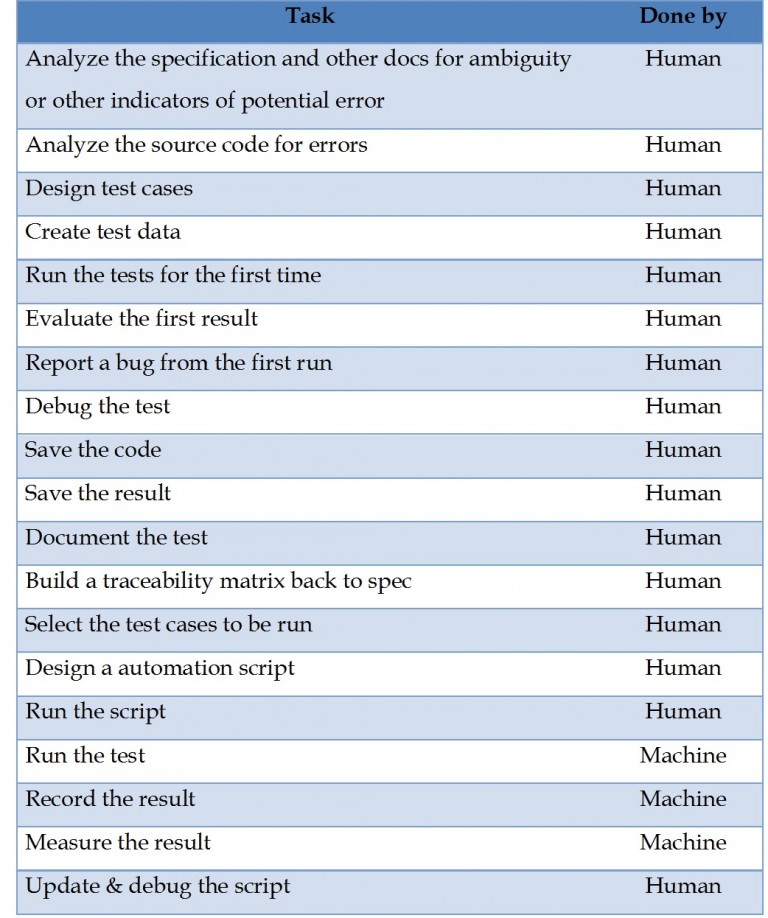Let’s be clear, “3 Myths of Test Automation” is not about bashing test automation. If you are a tester frustrated at having to do test automation (or generally unhappy!), reading “3 Myths of Test Automation” will not bring you any solace. However, if you are a CEO/ CTO/ Product manager or someone genuinely interested in finding a value proposition through test automation, you may find this a good read.
Automation testing is a concept that is heavily marketed today. You may ask, WHY? Well, the simple answer is – “Clients dig Automation.” Let me list down your common problem and how you believe test automation is your panacea:
While these beliefs aren’t entirely false, they hide some common misconceptions. It is, in fact, these incorrect assumptions that result in the failure of test automation projects.
Let us enumerate the tasks in test automation and map these tasks to a human or to a machine (automation script):
If you agree with the task distribution in the table above then you cannot deny the following misconceptions:
-
“Test automation is a means to reduce cost,” is one of the 3 myths of test automation.
To be honest, test automation cannot be looked at from the prism of profit/loss. The benefits of test automation: – reliability, scalability, reduced dependency, robustness, etc, are unquantifiable. You cannot put a number on them. Even the most notable critics of test automation like James Bach or Michael Bolton, would agree that test automation has unquantifiable and innumerable benefits. Just that you can’t measure all these benefits and you can’t map them to cost savings.
-
“With Test automation, I can replace manual testing” Nothing can be farther from the truth.
As the table above shows, test automation supplements a manual tester. It does not replace the manual tester. Let me quote Jonathan Kohl (famous software scientist) from his interview with DZone:
Kohl: “Think of all the things people can do well that machines can’t do well. Machines can’t feel, they can’t have a hunch, they can’t be suspicious, they can’t investigate, and they can’t change their minds due to better information. I don’t see automated testing throwing manual testing aside. And I have seen a lot of efforts fail when people have tried to do that.”
- “Test automation will improve my product quality.” This may not be a complete misstatement, but it is a myth.
A machine can find a problem if it is programmed to find it, and it can do it without any intervention, efficiently, and with reliability. A human will be inefficient and unreliable. But a human being can do what a machine can’t; it can ideate and anticipate. A human being can find a problem, which was not thought of in the product specification (which is actually the true purpose of testing).
If you really care about product quality, give the tester all the automation tools and let him ideate and anticipate. This is the value proposition offered by Test Automation!
Need help? Contact us now!


